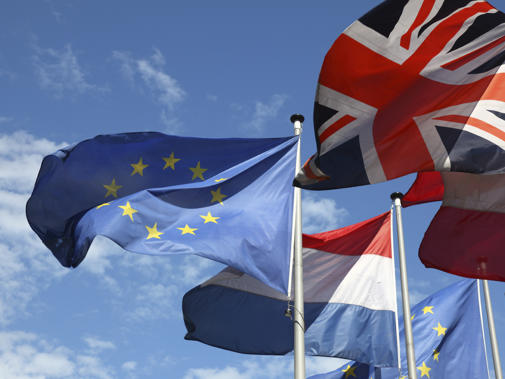It is difficult to remember a time when our news was not completely taken over by headlines on COVID-19; updated daily statistics on positive tests, numbers of deaths and the array of responses from countries around the world to try and contain the spread of the virus, alongside announcements of lockdowns and easing of restrictions taking centre stage.
However, slowly but surely, other issues have crept back into the spotlight including Brexit. It has been a long and eventful four and a half years since the outcome of the June 2016 referendum and the drama isn’t over yet!
Just to recap, the UK stopped being a member of the EU at 23:00 GMT on 31 January 2020, and immediately entered an 11-month transition period which ended 31 December 2020. During the transition period, the UK continued to follow all the EU's rules and its trading relationship remained unchanged.
However, it is no longer part of the EU's political institutions - so there are no longer any UK MEPs in the European Parliament and none of the three Northern Ireland MEPs previously elected are there to give voice to the significant concerns being experienced over Brexit here.
Brexit has been and remains a controversial and divisive issue with our political parties in Northern Ireland taking polar opposite positions. What has caused most controversy is the UK Internal Market Bill which became law on 17 December 2020.
This Act contains the Northern Ireland protocol which, to avoid a land border between Northern Ireland and the Republic of Ireland, has essentially put in place a border down the Irish Sea. In short, Northern Ireland remains in line with EU trade regulations and sits apart from those GB adhere to.
Unionist parties in general and the DUP in particular, are against the protocol and the DUP launched a five point ‘Free us from the protocol’ campaign in February 2021. Legal action has been lodged in the High Court of Northern Ireland with an anticipated full hearing of the matter on 13 May 2021. However, the crowd funding appeal which hoped to raise £150,000 for legal costs has only managed to raise less than £61,000.
So, what impact has Brexit had to date on the main areas of concern BMA has? A grace period was put in place with regards to accessing a secure and consistent supply of medicines and medical devices.
Although an extension to this has been sought, the current situation is that it will run out at the end of this year which, given that 98% of medicines and medical devices come through Great Britain, remains a huge area of concern.
We also called for the ongoing mutual recognition of professional qualifications but this has now ended. It does not affect those who are already employed but if you wish to practice medicine in the future in a jurisdiction outside where you gained your qualification, you need to apply within that country.
Cross-border provision of services continue such as the North West cancer service and the paediatric cardiac service, but any medical professionals working on both sides of the border, even just accompanying patients, will now require dual registration.
The drama which began in June 2016 continues with no imminent sign of it subsiding. The best we can hope for is that the disagreement over the Protocol will be thrashed out through dialogue and will not threaten the stability of our fragile political structure.
Bernadette Maginnis is a BMA senior public affairs adviser

